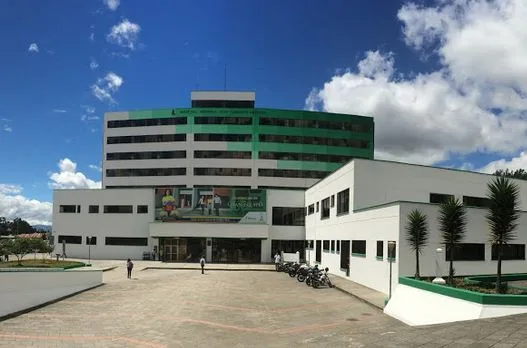He just signed up for IESS heath care for $67 a month; Why do other expats pay much more?
Thousands of Ecuador expats has been affected by changing health care insurance requirements in the country. Rivers of mixed messages and misinformation, both from the government and the gringo social media, have left many wondering where to turn for an accurate accounting.
 When Ecuador’s National Assembly passed a new immigration, the Ley de Movilidad Humana, early last year it contained two provisions that affected foreigners, one requiring foreign residents to have health insurance and another requiring visitors to show proof of insurance when they enter the country. However, because there was no developed infrastructure to support the new requirements, and because of legal challenges, the implementation of most of the regulations have yet to occur. A registration process in which expats were to provide proof of insurance was called off within days of the deadline and, more recently, the requirement for visitors was delayed indefinitely.
When Ecuador’s National Assembly passed a new immigration, the Ley de Movilidad Humana, early last year it contained two provisions that affected foreigners, one requiring foreign residents to have health insurance and another requiring visitors to show proof of insurance when they enter the country. However, because there was no developed infrastructure to support the new requirements, and because of legal challenges, the implementation of most of the regulations have yet to occur. A registration process in which expats were to provide proof of insurance was called off within days of the deadline and, more recently, the requirement for visitors was delayed indefinitely.
Unrelated to the immigration law but affecting some expats’ health care coverage, are new rules for voluntary membership in Ecuador’s Social Security system (IESS). Among the several benefits IESS offers, is health care. In Cuenca, it is estimated that 200 to 300 expats are members of the program.

The IESS hospital in Cuenca
About the same time that the new immigration law was passed, IESS announced that foreign resident members would no longer pay based on the national minimum wage — which amounted to about $70 a month for a single person — but be required to pay 17.6 percent of the income reported in their residency application.
Almost immediately after the new IESS payment plan was announced, chaos ensued.
Thus begs the question: Is IESS drowning in the undertow of incompetent implementation of new regulations, or are there more complex legal issues causing the confusion? Cuenca attorney Lina Ulloa, among others, says the new payment plan violates the constitution.
Anecdotal evidence suggests widely divergent fees being quoted to expats interested in purchasing insurance through IESS, depending on their location in Ecuador. Fees vary by hundreds of dollars.
Astonishingly, when I called around last week I could not find a single facilitator or lawyer outside of Cuenca or Quito who has ever recommended that expat clients pay the contested 17.6% of declared income.
To dig more deeply into the story, I decided to sign up with IESS myself, to test the waters and to better understand the options available to expats — at least in Cuenca.
I met with Monica Gonzaga, facilitator and asesora personal, and asked her about the state of affairs regarding insurance for visitors, visa holders who registered as retirees, and permanent visa holders who have lived in Ecuador for a number of years. Her response was detailed, cautious, and exposed what seems to be a rather fluid state of affairs. What astonished me most, however, was the changeability and unpredictability of the system.
Monica enrolled me as a voluntary member of IESS system online. My monthly contribution? $67.49 due in mid-April. And, I now have in my hands a Certificado de Afiliación and ID number issued by IESS.
It is the opinion of Gonzaga and others in the field that until clear, legal and enforceable rules are in place at IESS, confusion will continue to reign.
My successful IESS enrollment, at a rate far lower than many of fellow expats pay, is a clear example of this.
The controlling issue surrounding the legality of any insurance increase, or variation, under Ecuadorian law is the standard of equality likened to most socialist countries; the bar of exceptionalism regarding ‘privilege’ is extremely high.
Lawyers who oppose the IESS increase point to the regulation as creating special classes of citizens: Expats who have the resources to invest in a business, or purchase a house, are offered a visa that exempts them from fees and charges that apply to the general population.
The contention here is whether the constitution of Ecuador specifically supersedes any efforts to enact Orwellian structuring that applies general or specific accommodations based on income, or investment, that is not equal to accommodation offered the general population. (We are all equal but some are more equal than others.)
I spoke with one attorney, active in clarifying the IESS situation, who asked not to be named.
She said, “I’ve become everyone’s least favorite person. I have tried almost daily for the last few months to get a definitive answer from regulators or others in a position of authority, and have had no luck. It amazes me that on every occasion everyone I ask to speak to about the IESS fee issue is either out to lunch, sick, or is attending the funeral of his grandmother — yet again”.
For the time being let’s accept that we are in uncharted waters and that the ebb and flow of this issue will remain with us for a while.
Why not just sit tight and take to heart in the wisdom of Bette Davis who famously said, “Fasten your seat belts, it’s going to be a bumpy night.”





















